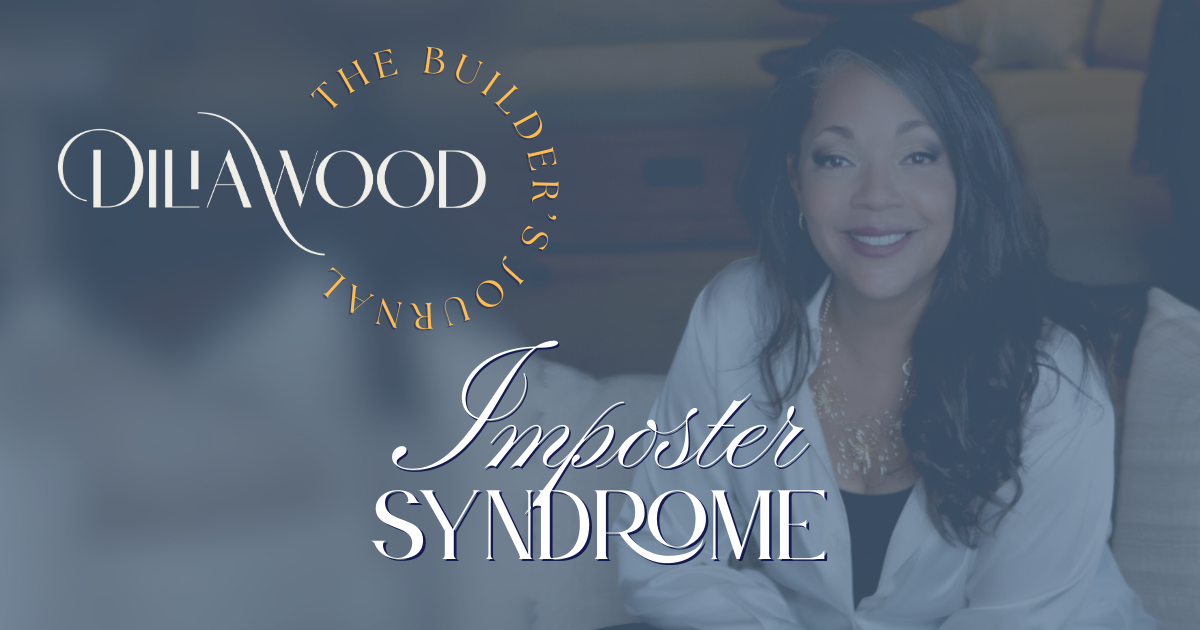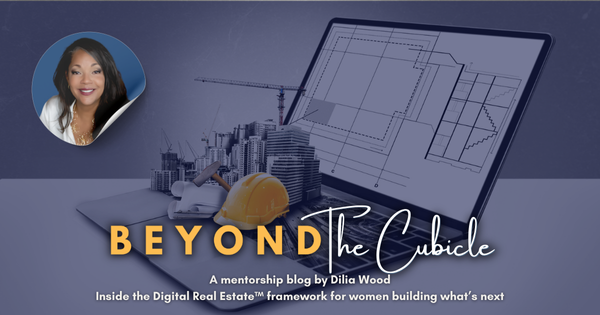It’s Not Imposter Syndrome. It’s a Power Literacy Gap.
That feeling isn't imposter syndrome. It's a sign you're seeing things others don't. This article reframes your awareness as a strategic advantage and shows you how to use it.

Look, that feeling is definitely real. But the label "imposter syndrome"? It points the finger at the wrong problem, and usually, that finger points right back at you.
Let's talk about what is actually happening.
The first time I pitched a multi-million-dollar business idea to a room full of bankers, mostly older guys who had been in the game forever, I walked out with their "yes" but still felt… off.
Smaller, somehow.
It was not that I bombed. They actually approved the deal. But something just did not sit right. Most of them smiled, nodded, even said congrats. But there was this one guy, right in the middle, who never cracked a smile.
He was in a polo shirt, and you just knew I was the only thing between him and his tee time. I handed over my business plan, feeling like it was my one shot to prove I deserved to be there. He flipped through it like he was skimming a takeout menu.
Didn't ask a thing.
No expression.
Just quiet.
Real quiet. I even tried to make a joke about a round of golf I had at Avenel.
Nothing.
So, I walked out with the approval, but man, I still felt like even merit couldn’t cure the heat.
People call that moment "imposter syndrome." But I have built businesses in rooms exactly like that one: rooms where power is all about how little you say and how long you can stare someone down.
So let me just say this plain: That feeling wasn't a flaw in my confidence. It was friction from a system I hadn't learned to read yet.
That quiet man in the polo shirt? He wasn't just quiet. He was demonstrating his power. My detailed pitch showed my merit, but his silence and disinterest were meant to signal that he held the ultimate authority, regardless of my data. He was playing a different game, and I was still playing by the "good girl" rules.
This is what's missing from the "imposter syndrome" conversation:
Power Literacy.
It’s Not Your Mindset. It’s the Room.
Power literacy is knowing how to read the room on this deeper level. You get how power really works. You see why one person's idea gets all the applause while someone else’s, just as good, gets ignored. It is understanding the currents of influence, the unwritten rules of engagement, and the often invisible architecture of authority in any given environment.
In the world of the bankers from my story, this meant recognizing the close-knit network of deal-sharing and golf games. It extended to the symbolic capital of where they were educated, the college sports they followed, and even their choice of car. It was a culture with its own secret language of industry acronyms. My task wasn't to become one of them; it was to learn to speak "banker", not fluently, but enough to decode the critical information, like breaking a code, so I would never be lost in the conversation.
Being Adaptable Isn’t Weakness. It’s Intel-Gathering.
When you are always trying to fit into places that were not really built with you in mind, it is normal to feel like you don’t quite belong. That uneasy feeling isn't you being weak; it's a signal. It means you are paying attention. You are reading the room, gathering data, and noticing things other people miss, especially the people the room was designed for.
The tough part is, when everything around you screams one narrow idea of "success," that awareness can get turned back on yourself. You start thinking, "What is wrong with me?" instead of, "Hey, what is a little off about this setup?"
But here’s an insight often overlooked: That persistent sense of being flawed is frequently a misinterpretation, an echo of navigating environments with unspoken rules, rather than an accurate measure of your genuine worth.
You are not the imposter.
You have actually got this skill I call 'double awareness': you see yourself, and you see all the unspoken rules and vibes happening around you, all at the same time. That is not a flaw.
It’s a superpower.
But we must be honest: maintaining this superpower carries a real cognitive cost. The weight of this dual focus is heavy, which is why it's critical to learn not to be reactive to every situation. This is where mentorship becomes essential. A network of trusted mentors provides perspective, allowing you to process the 'room reading' in retrospect so you can recognize the patterns more quickly next time.
They help you carry the load.
Beyond Mindset: Uncovering the Hidden Influences
So much advice, especially for women, is about fixing your mindset:
Just believe in yourself! Own your worth!
And self-belief is important. But if that’s where you stop, you are missing the biggest piece of the puzzle.
Why were you made to doubt yourself in the first place?
For many of us, particularly women and people of color maneuvering through historically male-dominated industries, this pressure is intensified. The journey isn't an exercise in competing to fit in or proving you belong. It becomes about developing the crucial skill of selectively ignoring established norms in order to create from a place of innovation, not replication. It’s about building something new, not just getting a seat at a table that wasn't designed for you.
Who benefits when you spend all your energy questioning if you are good enough, instead of questioning the game itself? The more you decode these things, the less you will take it personally. You stop asking what is wrong with you, and you start asking, "Wait a minute… what was I never supposed to catch on to here?"
From Solo Builder to Strategic Alliances
This brings us to a final, crucial point. You do not have to, and should not, decode these arenas alone. Power is rarely navigated solo; it is managed through coalitions and trusted alliances.
The builder’s acumen I speak of is developed most rapidly in the company of peers and mentors who are on the same path. This is the reason I have moved beyond 1:1 coaching to build Out of Office For Good, a private online community for professionals who are transitioning from established corporate roles to building their next venture.
It is the answer to the question, "How do I find my allies?"
We are currently in a beta phase, focused on fostering a high-trust environment. We will be opening the doors to our next cohort soon. If you are ready to stop navigating the system alone and start building alongside a network of peers and mentors, I invite you to join the waitlist. It is the first step toward building with the support you need.

Last Thing I Will Say On This (For Now):
If you have been dragging around that "imposter syndrome" label, here is what I want you to get:
You do not need to magically become "more confident" within frameworks set up to make you doubt yourself. You need to stop trying to shrink yourself to fit into boxes that were never built for your big vision.
You are not the imposter.
You are the one who sees things differently. And that might just make you the upgrade the arena has been waiting for, even if it doesn’t know it yet.
If this hit home, I write like this weekly.
Real stories. Real strategy. For the rest of us.




